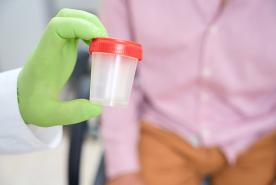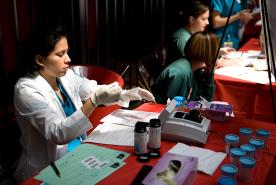What is BK virus?
BK virus is a virus that most people get in childhood. Symptoms can feel like a common cold. Once you get a BK virus infection, the virus stays in your system for good. But it does not cause a problem for most people. This is called latent, or like being ‘asleep’ in your body. Sometimes, when your immune system is not working well, the virus wakes up. Then it can cause symptoms of infection. BK virus is also called polyomavirus.
What increases the risk for BK virus infection?
- Organ transplant, like a kidney transplant
- Kidney surgery or injury
- Older age
- Health conditions that weaken your immune system (HIV and Diabetes, to name a few)
How does transplantation increase the risk for BK virus problems?
After your transplant, you will take special “anti-rejection” medicines. They cause your white blood cells not to work as well. White blood cells help your body fight infection. When you take these medicines, your body has a higher risk for infection. You can have BK virus in your system and not be aware of it. After your transplant, the virus may become active again. This is from the anti-rejection medicines. It can damage your new kidney and cause your body to reject it.
How will I know if the BK virus is in my system?
Your healthcare provider will check for signs of the virus in your system. They will check both before and after receiving your kidney transplant. Since BK virus can “wake up,” it is important to watch for signs of infection. Symptoms may include:
- Changes in vision, like blurred vision
- Changes in the color of your urine (urine that is brown or red in color)
- Pain when you urinate
- Difficulty urinating
- Needing to urinate more than is normal for you
- A cough, cold, or trouble breathing
- Fever, muscle pain, or weakness
- Seizures
Having any of these symptoms could be a sign of infection. This can affect the success of your kidney transplant. It is important to tell your healthcare provider if you notice any signs of infection.


















